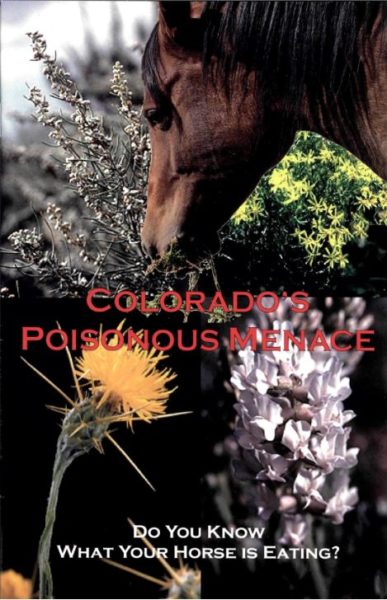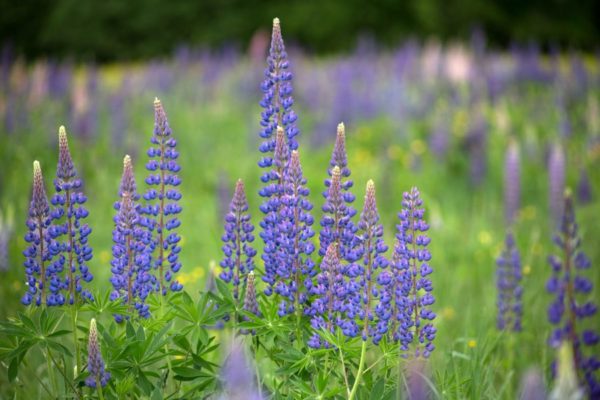Many of the plants we encounter every day, both at our homes and in the wild, can be toxic to people, pets, and livestock. Fortunately, there are several helpful Colorado resources that you can use to identify these plants and learn about their adverse effects and treatment in case of accidental poisoning.
 Colorado State University’s Veterinary Teaching Hospital website provides an online Guide to Poisonous Plants. This searchable database contains information on the toxicity of some of Colorado’s common poisonous plants, particularly those found on rangelands. Each plant species profile includes photos and information on habitat, affected animals (and if the plants are also poisonous to people), signs of toxicity, and treatment. Much of the information in the database pertains to livestock animals, but plants toxic to dogs and cats are also included. More detail on Colorado plants toxic to livestock can be found in Plants Poisonous to Livestock in the Intermountain Region, from Colorado State University’s Agricultural Experiment Station. Toxicity information can also be found in the Colorado Department of Agriculture’s Noxious Weed Species database, and in their publication Colorado’s Poisonous Menace: Do You Know What Your Horse is Eating?
Colorado State University’s Veterinary Teaching Hospital website provides an online Guide to Poisonous Plants. This searchable database contains information on the toxicity of some of Colorado’s common poisonous plants, particularly those found on rangelands. Each plant species profile includes photos and information on habitat, affected animals (and if the plants are also poisonous to people), signs of toxicity, and treatment. Much of the information in the database pertains to livestock animals, but plants toxic to dogs and cats are also included. More detail on Colorado plants toxic to livestock can be found in Plants Poisonous to Livestock in the Intermountain Region, from Colorado State University’s Agricultural Experiment Station. Toxicity information can also be found in the Colorado Department of Agriculture’s Noxious Weed Species database, and in their publication Colorado’s Poisonous Menace: Do You Know What Your Horse is Eating?
Many of these plants can also be toxic to people. Small children are especially likely to put things in their mouths that they shouldn’t. The Colorado Department of Public Health and Environment has published Guidelines for the Identification of Poisonous Plants in Child Care Centers which includes common poisonous houseplants, landscape plants, and even parts of fruits that can be toxic to children, such as apple seeds and peach pits. Another helpful resource is the Colorado State University Extension’s booklet Common Poisonous Plants in Home and Grounds, available for checkout from the State Publications Library. Finally, if you’re wondering what plants are safe to eat, take a look at the Extension’s Edible Flowers fact sheet.

- How to Spot the Differences Between Eagles and Hawks - August 16, 2021
- How Transportation Projects Help Tell the Story of Colorado’s Past - August 9, 2021
- Time Machine Tuesday: The Night the Castlewood Canyon Dam Gave Way - August 3, 2021